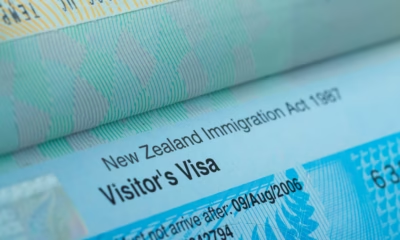NEWS
Why New Zealand are now taking strict actions on Immigration

New Zealand has implemented stricter visa regulations, including language and skill prerequisites, along with shorter work permit durations, in response to what it deems as “unsustainable net migration.”
The adjustments to the Accredited Employer Worker Visa (AEWV) program took immediate effect, aiming to enhance scrutiny of the local job market and mitigate the risk of displacing New Zealanders from employment, announced Erica Stanford, the country’s Immigration Minister, on Sunday.
According to official statements, in 2023, a total of 173,000 non-New Zealand citizens migrated to the country.
Acknowledging persistent skill shortages in sectors like education, Stanford emphasized the importance of prioritizing New Zealanders for job opportunities in areas without such shortages.
Key alterations to the AEWV scheme involve implementing a minimum English proficiency standard, establishing new criteria for skill levels through work experience or qualifications, and reducing the maximum continuous stay permitted on an AEWV to three years.
Employers are now obligated to ensure that migrant employees meet these criteria before hiring them, and they must confirm that no suitable New Zealand candidate applied for the position before offering it to a migrant.
Additionally, job postings must be advertised for a minimum of 21 days, and employers must provide explanations for why any New Zealand applicants were not selected, as outlined by New Zealand’s Ministry of Business, Innovation and Employment.
Exceptions to these requirements will apply to certain roles within the transport and care sectors, as stated on the Ministry of Business, Innovation and Employment’s website.



























